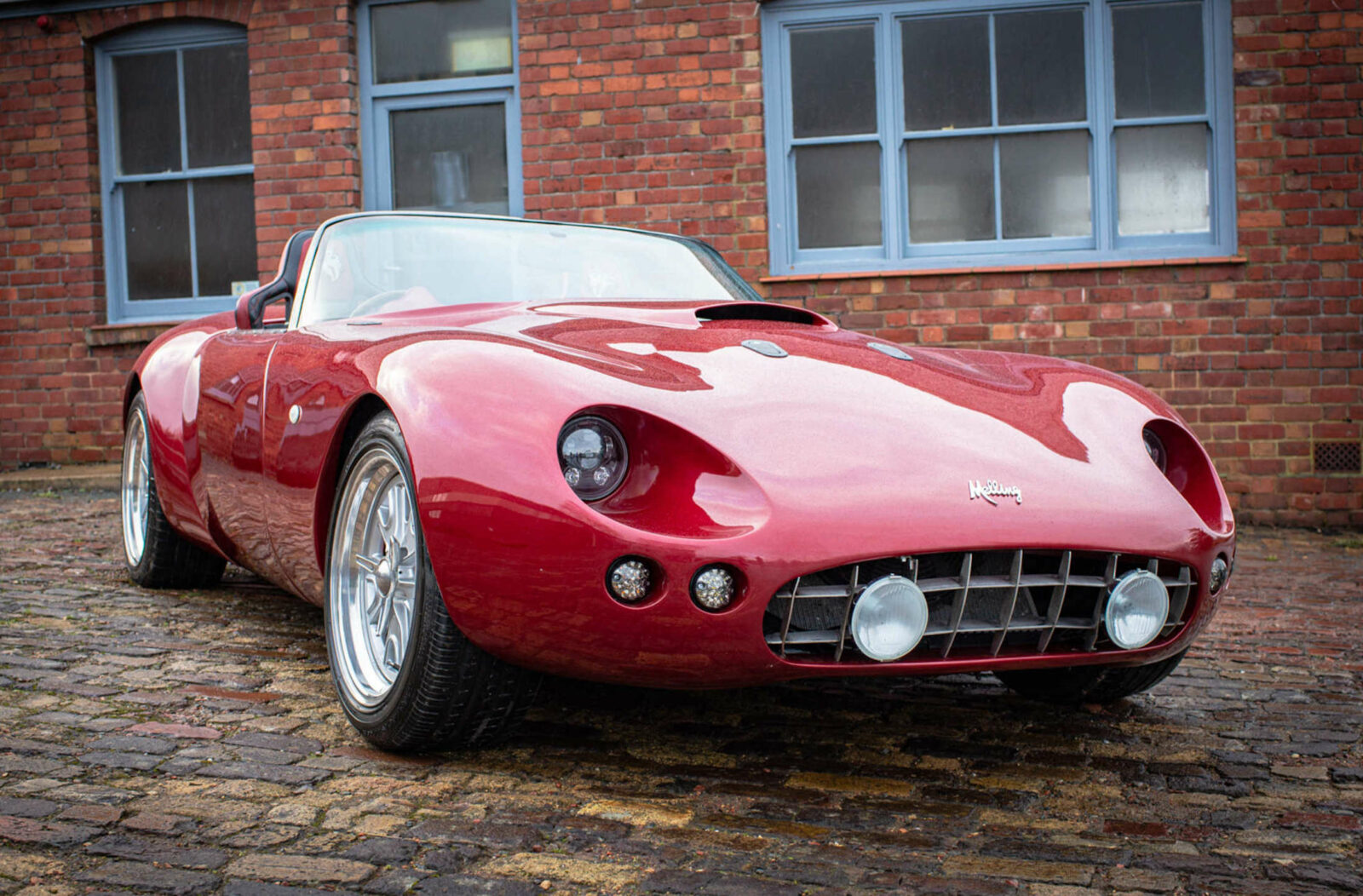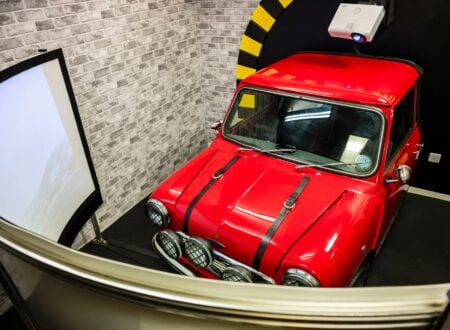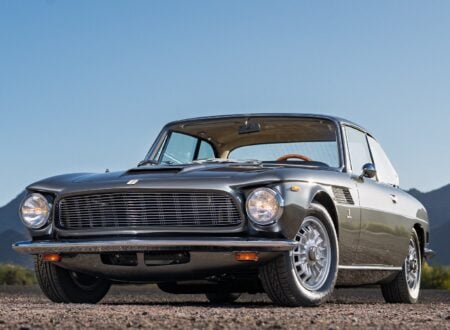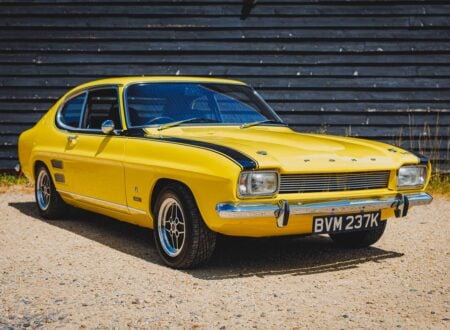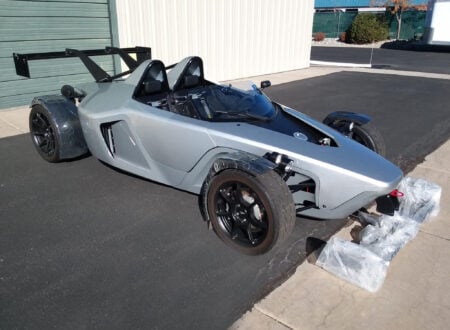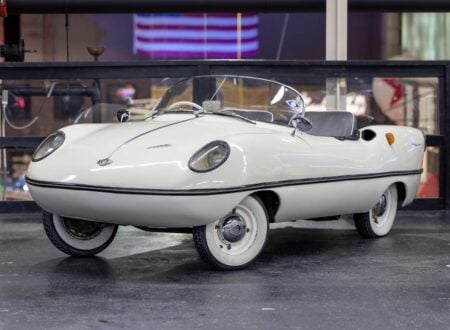This is the Melling Wildcat, or more specifically it’s the prototype of the Melling Wildcat that was developed by legendary British Formula 1, supercar, and motorcycle engineer Al Melling.
The Wildcat was intended to be built simultaneously at factories in Britain and the United States. The car could be ordered in a number of configurations and it was planned to be an affordable sports car for the masses.
Fast Facts – The Melling Wildcat
- The Melling Wildcat was developed by British engineer Al Melling, a man famous for developing and co-developing engines that were used in Formula 1, at Le Mans, in a number of sports cars and supercars, and in a number of motorcycles.
- The car was intended to be a direct replacement for the more affordable sports cars that had been formerly produced by companies like TVR and Marcos.
- Though it does bear some resemblance to the TVR Griffith the Melling Wildcat is a unique design with its own chassis, body, and suspension developed in-house.
- The car you see here is the Melling Wildcat prototype, it’s powered by a Chevrolet LS 5.7 liter V8 producing 450 bhp, and the current owner has spent significant time and money fine tuning it to get it set up correctly.
Taking Over TVR
Al Melling had worked as a powertrain engineering consultant with British automaker TVR for a number of years, developing both the TVR AJP8 V8 and the TVR Speed Six straight-six engine in the process.
Above Video: This is footage from 14 years ago of Al Melling himself in a Wildcat showing how easy it is to do burnouts.
Through his time working closely with the team based in Blackpool he developed an affinity with them, and so when TVR was offered for sale in 2007 Melling joined forces with rock legend and Yes keyboardist Rick Wakeman to submit a formal bid.
The two men planned to keep production of TVR alive at the original Blackpool facility and to further develop current models while also developing all new cars. Additionally, their plans included building Melling cars alongside TVRs.
Unfortunately the proposed bid was unsuccessful, and so Melling set out on his own to produce his cars independently.
Building A Better Griffith
The first car developed by Al Melling Sports Cars was to be the Melling Wildcat.
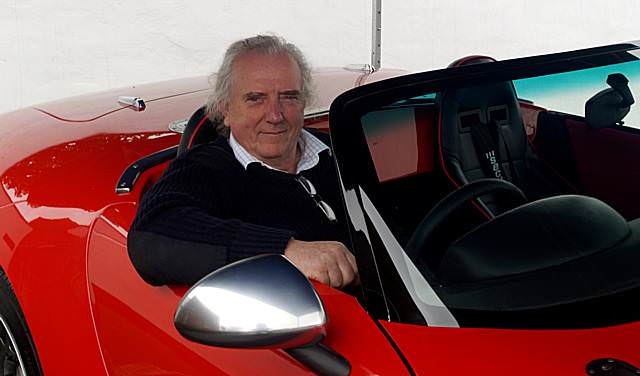

The car did have a familial resemblance to the earlier TVR Griffith and Melling himself in interviews explained that he developed the Wildcat to be the car the Griffith should have been.
The Melling Wildcat
The Wildcat has a steel box section chassis with built-in roll over and side impact protection. It offered excellent rigidity for the weight and allowed the engine to be positioned behind the front wheel centerline, resulting in a car that was front mid-engined for optimal balance.
A fiberglass body was fitted over the chassis, this offered a low weight and rust free solution and despite its looks its actually both a little longer and a little wider than the Griffith.
A number of engines were offered from the Melling factory including the Al Melling-designed AJP8 V8 and the General Motors LS V8. Disc brakes were fitted front and back, and buyers could opt for either independent front and rear suspension, or a less expensive live axle rear.
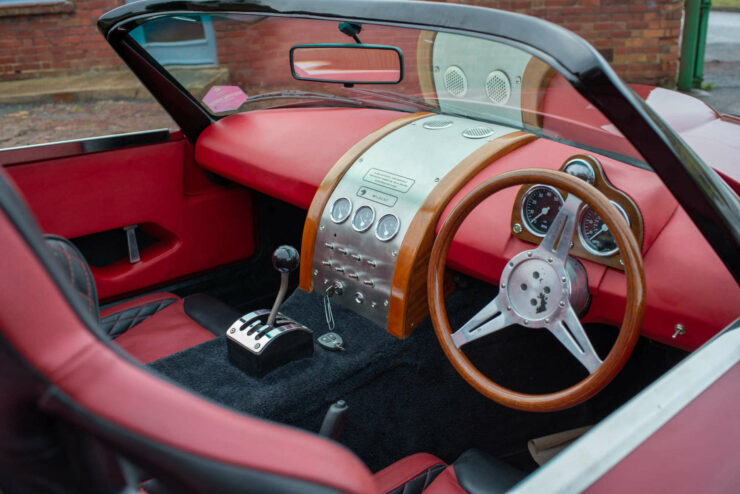

The performance specifications of the car would have arguably made it the fastest new vehicle in Britain at its £45,000 – £50,000 price point. The Wildcat was said to be capable of 180 mph, with blisteringly quick acceleration – thanks in no small part to the curb weight of 998 kilograms (2,200 lbs).
Sadly the Wildcat would never reach the desired production of 150 per year, just seven were made in total and today they remain a rare sight, and highly collectible.
The Melling Wildcat Prototype Shown Here
As you’ll have seen in the introduction, this car is the Melling Wildcat prototype chassis #701.
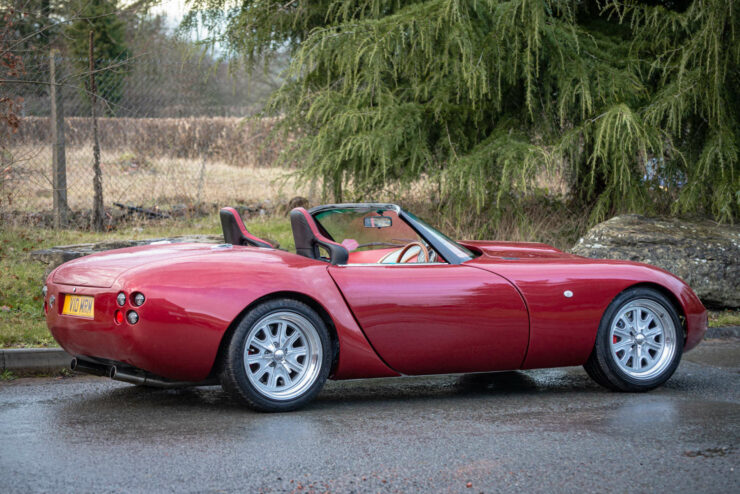

It was built to fine tune the design of the UK-specification production cars and used as a demonstrator. It was bought by the current owner with 2,000 testing miles on the odometer.
The car was still very much a prototype at this stage, and so the new owner embarked on a lengthy (and expensive) process of having the car improved from a prototype into something more akin to what the eventual production car would have looked like.
He worked with a pair of racing engineers to strengthen the chassis, redesign the suspension geometry, add new shock absorbers, redesign the steering geometry, and add hydraulic power-steering.
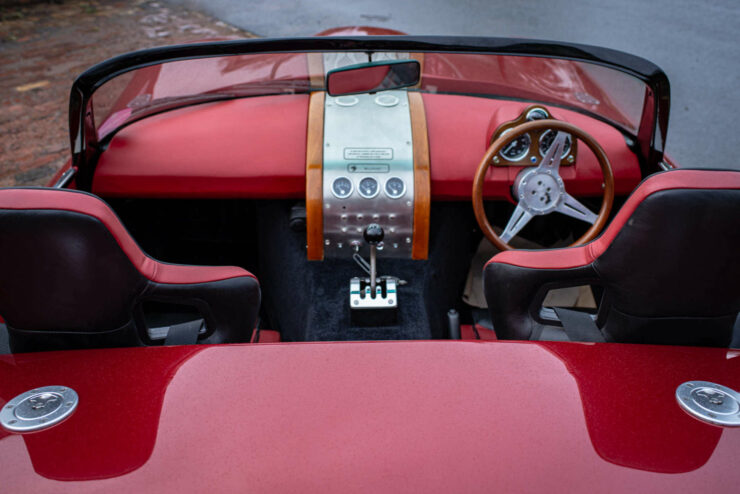

The car also benefits from a full professional respray in stunning “Soul Red Crystal,” it has new billet aluminum wheels, a custom stainless exhaust system, a new heavy-duty McLeod racing clutch, and custom one-off leather Corbeau bucket seats with a Wildcat logo on the headrest.
The car is now a nicely finished example of the exceptionally rare Wildcat and it’s due to be offered for sale by Silverstone Auctions on the 25th of February with a price guide of £20,000 – £30,000 or approximately $24,680 – $37,000 USD.
If you’d like to read more about it or register to bid you can visit the listing here.
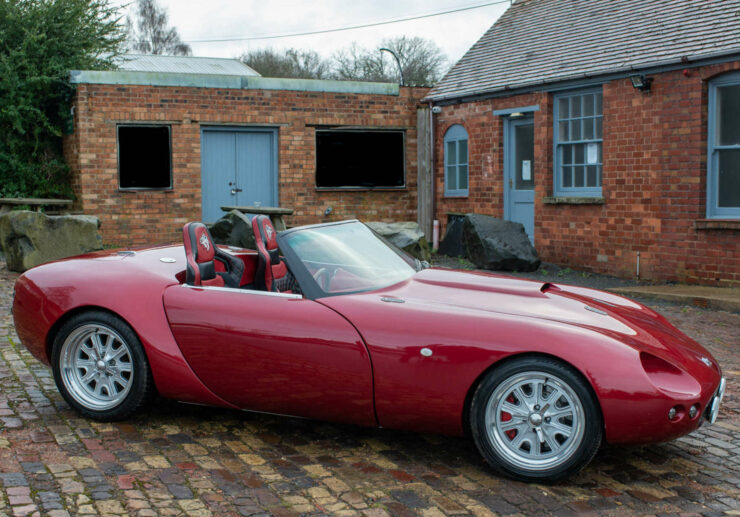
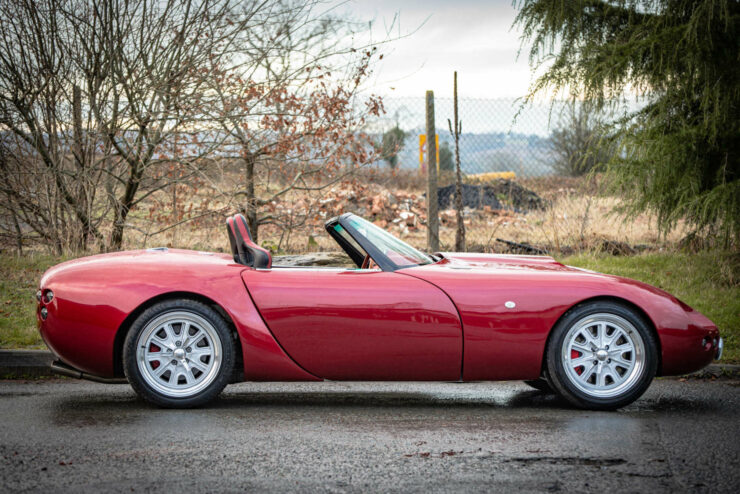
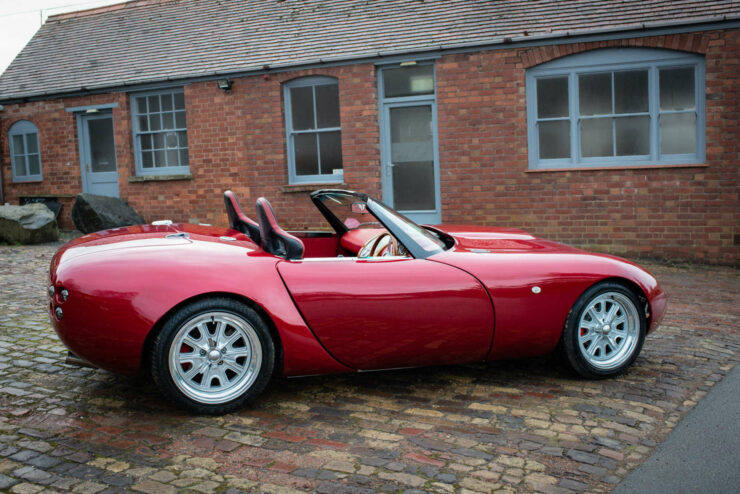
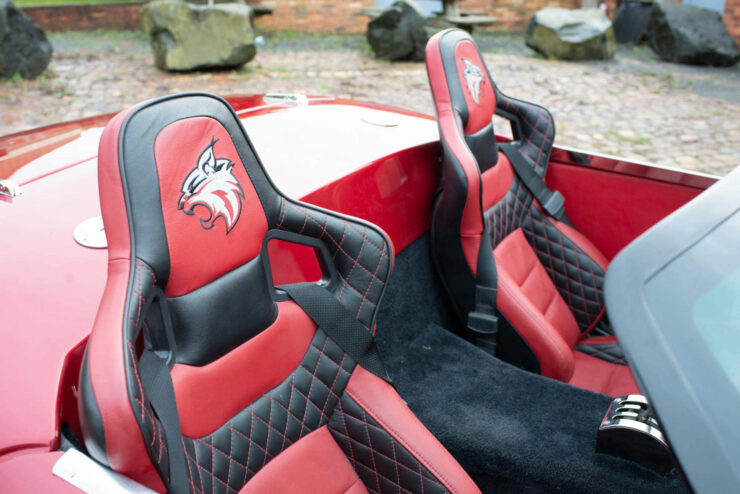
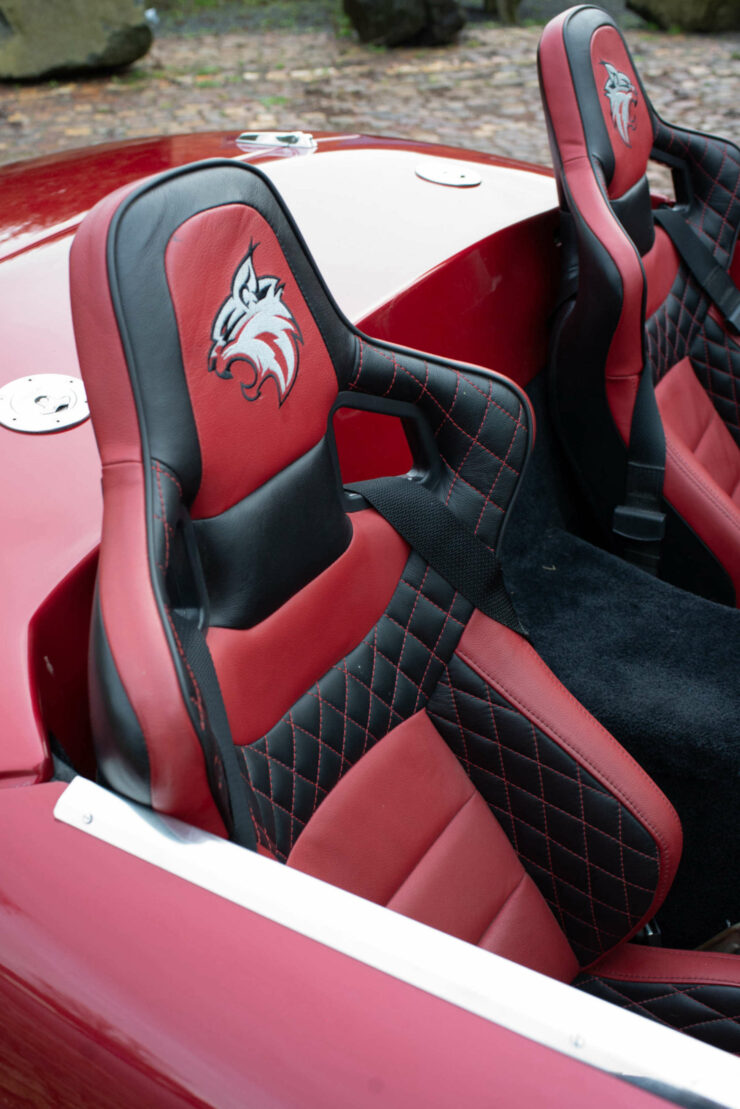
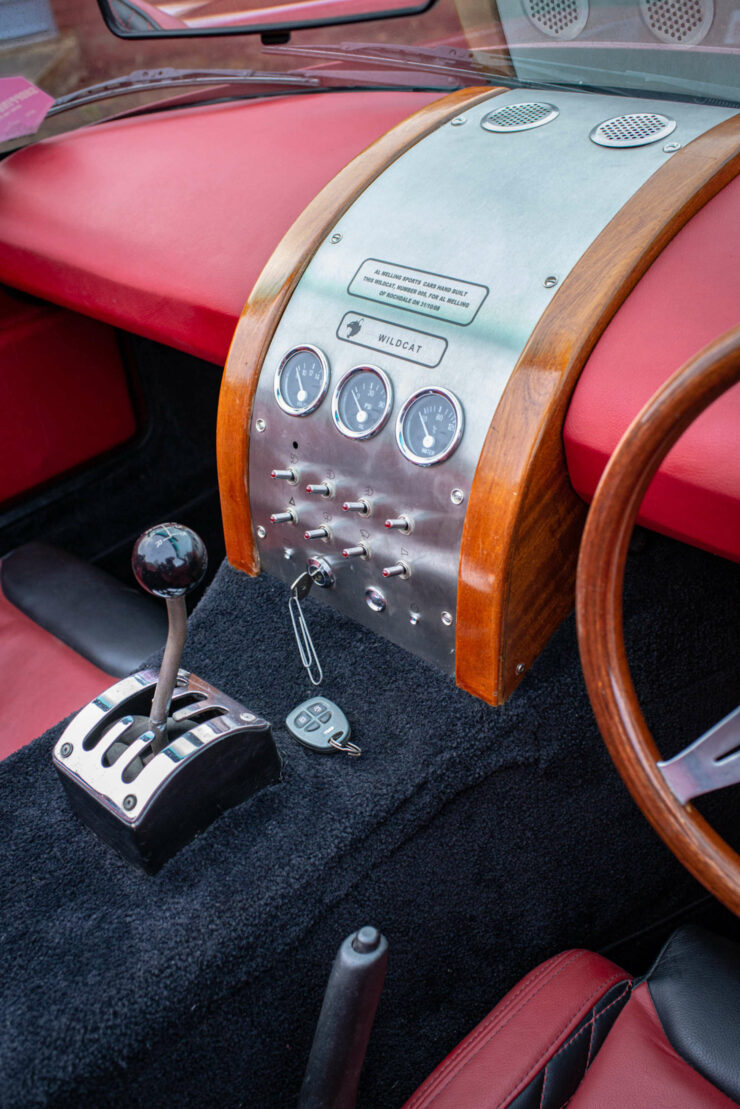
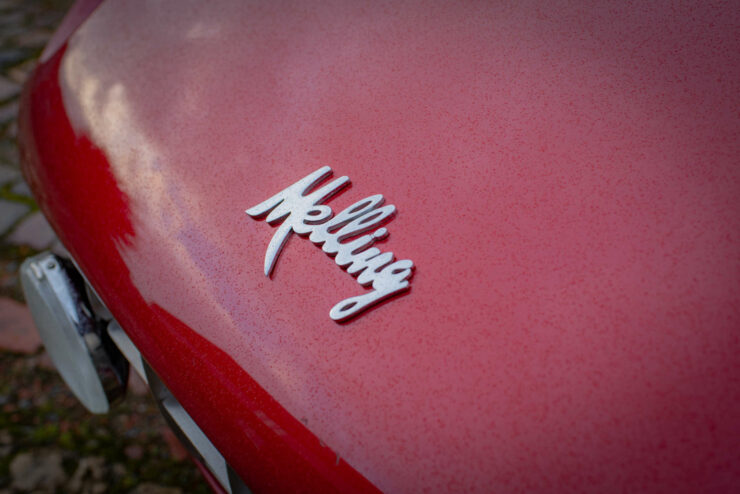
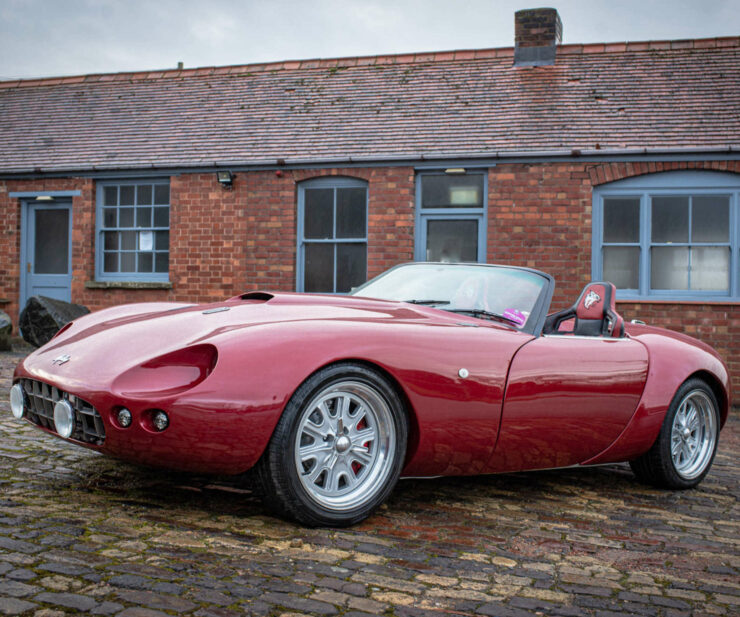
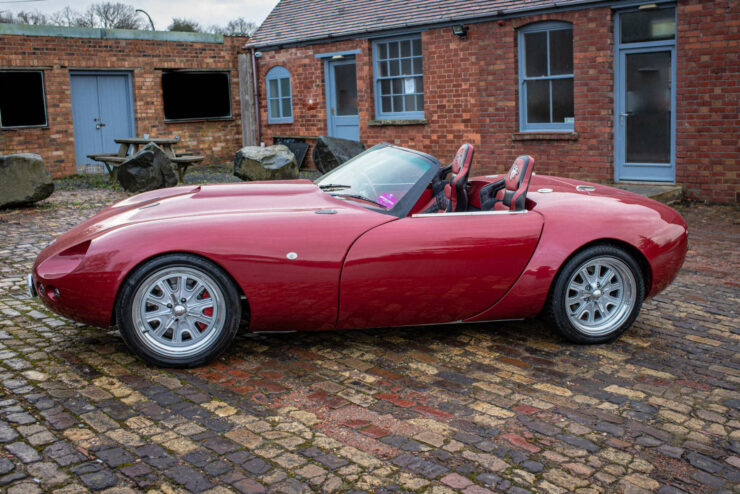
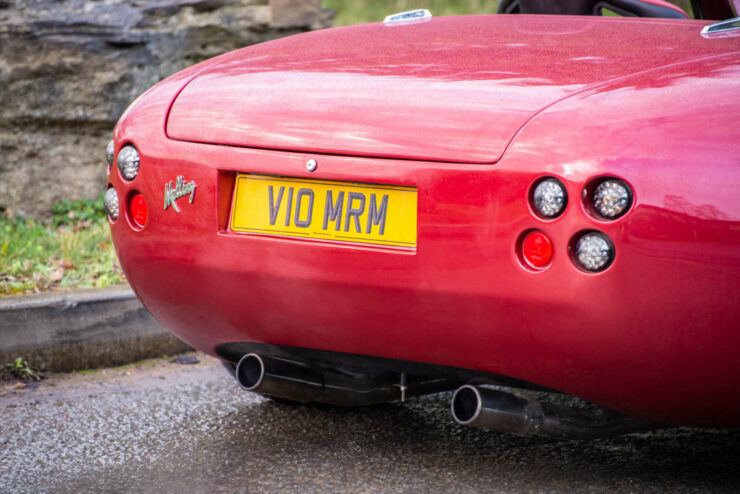
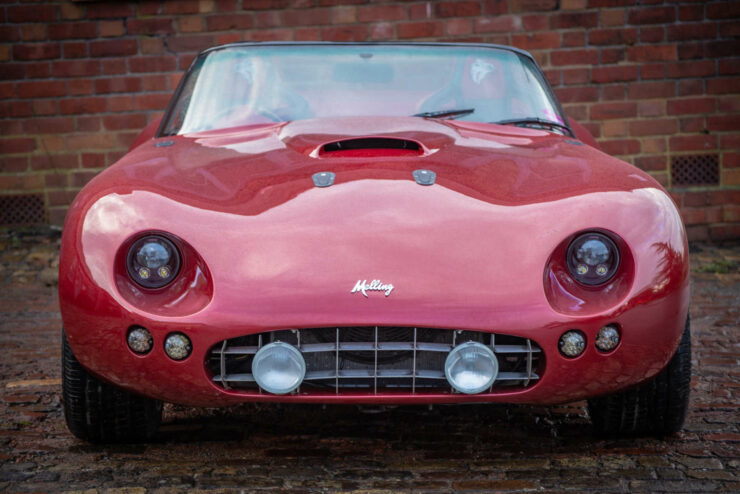
Images courtesy of Silverstone Auctions

